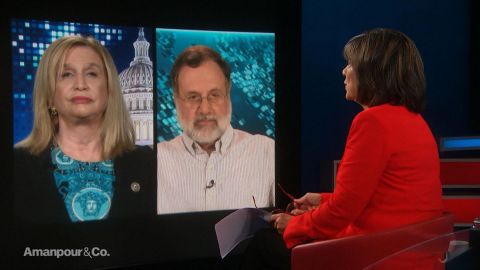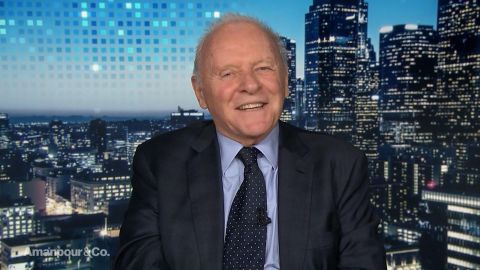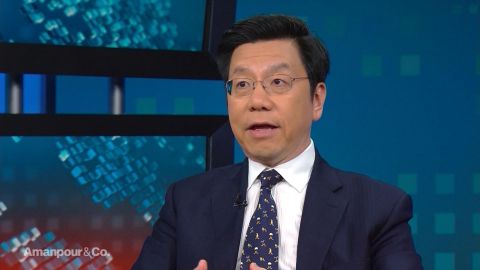Read Transcript EXPAND
CHRISTIANE AMANPOUR: You really didn’t want to be an actor. You said music and art were your first loves, and you sort of stumbled into acting by mistake. How so?
ANTHONY HOPKINS, ACTOR: I wanted to be a musician. I wanted to be a pianist and a composer. I played the piano ever since I was a kid, six years of age. Anyway, I was 17, and I sort of lost service in school, not qualified to do anything, hopeless of everything, academically, no sports, nothing like that. So I – I didn’t know what I was going to do. And suddenly, there was a scholarship for the Cardiff College of Music and Drama. So I thought, “Well, maybe I’ll go and try a scholarship as an actor, and see if I can sneak into the music department.” Anyway, I – I never acted before in my life, and I did a piece from “Othello.” And I did the audition – I didn’t know what I was doing, but I did the audition, full of sound and fury, and they gave me the scholarship, much to my surprise. So that’s how I’m – how I started out the world (ph) is – beats booking for a living.
AMANPOUR: Well, let – let me ask you something because it’s really interesting to hear that, 50 years ago, you got your big stage break by playing Sir Lord Laurence Olivier’s understudy in the Strindberg play, and one day, as every actor dreams, the principle fell ill, couldn’t play, and you stepped into the role. And I just wonder, you know, what you think about that serendipity and what he, then said, the great man himself, Olivier, wrote, “A new young actor, in the company of exceptional promise, named Anthony Hopkins, was understudying me and walked away with the part of Edgar, like a cat with a mouth between his teeth.” That’s pretty amazing. What did you think when you got that kind of validation?
HOPKINS: I had said – and I’m an ambitious young kid, you know. I wanted to do everything and be everywhere and – but I was scared stiff. And I was understudying Olivier. He seems to take a shine to me because I was very strong, and he admired strong men, you know, because I was, physically, very strong and tough. And I think he valued that in actors. He said, “You have to be strong, very healthy and fit.” So he gave me an understudy part to an understudy himself, and he had never been ill in his life. He was – then he had cancer. And it was in those days they had the ability of radium treatment, I think. And I was told that – I was one morning, saying, “You’re on stage tonight.” I said, “You’re kidding me.” And I thought they were joking. And I went into the theater for rehearsal. I’d learned the entire part. That’s my thing, though, I always prepare. I went into the rehearsal with Robert Stevens and Geraldine McEwan, and Glen Byan Shaw was directing. And fortunately, the – Olivier’s costume and uniform fitted me. But anyway, they started and I got a huge round of applause at the end of it, and apparently, I was told I was very good.
About This Episode EXPAND
Christiane Amanpour interviews David Kaplan, author of “The Most Dangerous Branch” & Carolyn Maloney, U.S. House Democrat; and Anthony Hopkins actor in “King Lear.” Hari Sreenivasan interviews Kai-Fu Lee, author of “AI Super-Powers.”
LEARN MORE


